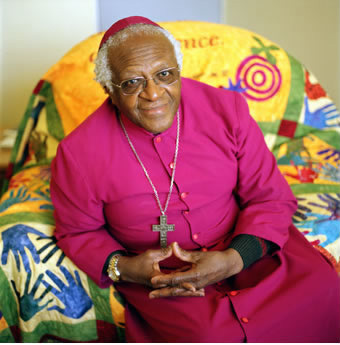Today’s prayer is attributed to Archbishop Emeritus Desmond Tutu adapted from an original prayer by Sir Francis Drake. I first posted this prayer a couple of years ago and it continues to be one of the most popular on my blog. I thought I would post it again as it is so appropriate for the season of Lent.
Disturb us, O Lord
when we are too well-pleased with ourselves
when our dreams have come true because we dreamed too little,
because we sailed too close to the shore.
Disturb us, O Lord
when with the abundance of things we possess,
we have lost our thirst for the water of life
when, having fallen in love with time,
we have ceased to dream of eternity
and in our efforts to build a new earth,
we have allowed our vision of Heaven to grow dim.
Stir us, O Lord
to dare more boldly, to venture into wider seas
where storms show Thy mastery,
where losing sight of land, we shall find the stars.
In the name of Him who pushed back the horizons of our hopes
and invited the brave to follow.
Amen
A couple of years ago I also obtained a copy of Desmond Tutu’s An African Prayer Book. It has some wonderful prayers in it and I would heartily recommend it to anyone who wants to enrich their prayer life.


8 comments
Thank you for posting this beautiful prayer by a beautiful man! I’ll highlight it on the Christian Poets & Writers blog – http://christianpoetsandwriters.blogspot.com . Also, a few weeks ago I received a review copy of Let There Be Light – an exquisite picture book of creation I highly recommend to read with young children – http://biblereviewer.blogspot.com/2014/01/let-there-be-light.html . Bishop Tutu wrote the poetic text, illustrated by Nancy Tillman.
Thanks Mary – I never tire of reading this prayer. I will look for the book you mentioned too
Such a beautiful prayer and so appropriate today! Thanks for posting Mary 🙂
Your welcome
Thank you for this. I’ll share it and pray it every day during Lent!
Thanks Linda – blessings on you and Mike and the family
Yes, a beautiful prayer – but I’m unclear at what point taking someone’s work and calling it your own versus calling it an adaptation is. Does modifying a sentence and adding an ending make a poem one’s own “adaptation.” I think most poets would cry foul.
John, this is the way the prayer is usually attributed though to be honest I have never seen an “original” attribution from Desmond Tutu. “To m “adapted” means it is not the same as the original prayer even if the changes are only small. Some say Sir Francis Drake did not write it anyway and I have seen several versions of the “original” prayer so I am not sure that anything we say about it is really true. Perhaps that is why it is always quoted as “adapted” by Desmond Tutu. I try to be as accurate as I can be with acknowledgements.